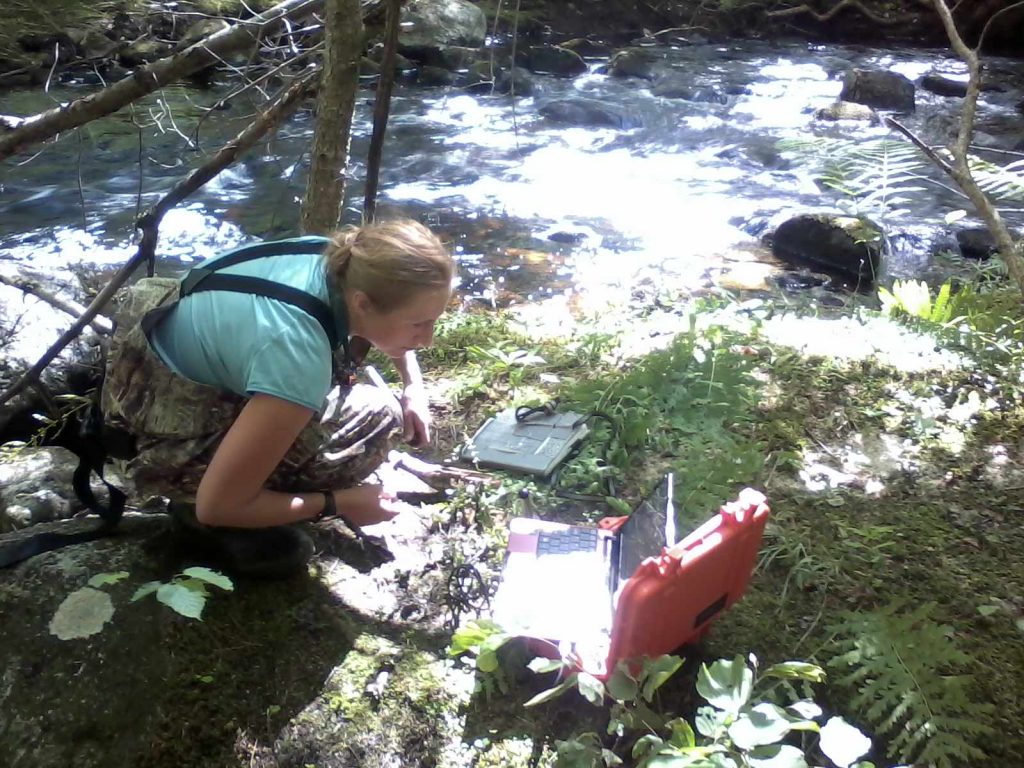Environmental Geosciences

The Environmental Geosciences Group at the University of Maine studies near surface Earth processes that control water movement, surface erosion, the transport of sediment and nutrients into and through major rivers, and the chemical alteration of earth materials. Ecosystem management, water resource protection, and the supply of clean drinking water are all intertwined with near surface physical and chemical processes. These processes impact the lives of people whenever they drink from Maine’s abundant water resources or cast a fishing line into one of the many lakes and rivers in the state, and they have direct bearing on the structure and viability of ecosystems in both rural and urban settings. Environmental geoscience faculty are involved in studies of watershed geomorphology, peatland hydrology and geochemistry, groundwater movement in fractured bedrock, chemical weathering of bedrock, and geochemistry related to carbon sequestration and greenhouse gas emissions. Examples of questions that inspire research undertaken within the group include:· What is the timing and magnitude of sediment movement through watersheds?
- How does groundwater flow within peatland ecosystems interact with carbon cycling?· What chemical reactions control the weathering of important rock types?
- How do biota affect rock weathering?
- How do watersheds respond to changes in climate, vegetation and urbanization?
Our studies involve field and laboratory measurements, experimentation and computer simulations. Collaborators in environmental geoscience activities at the University of Maine share our goal of improving our understanding of the environment to develop adaptive natural resource management strategies essential to sustainability. These groups, as well as state and federal agencies, provide many exciting opportunities for multidisciplinary interaction.

